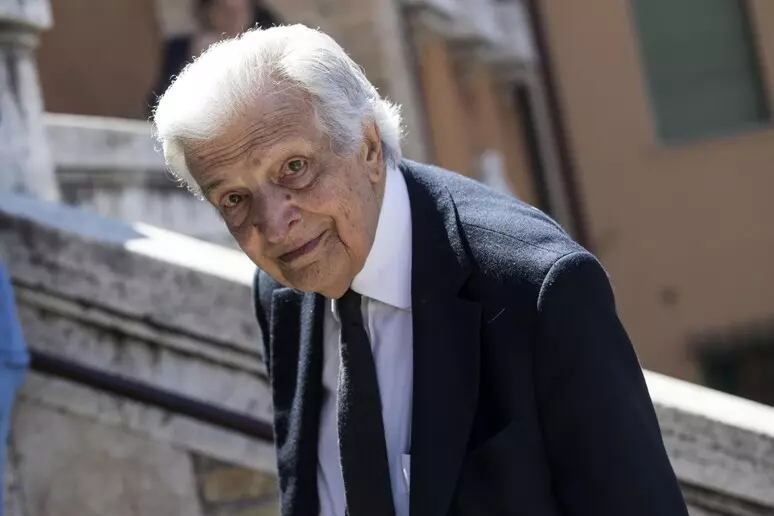Furio Colombo, the celebrated journalist, author, and cultural figure, passed away this morning in Rome at the age of 94. His family confirmed that he died surrounded by his wife, Alice, and daughter, Daria.
Colombo’s illustrious career spanned journalism, politics, and academia, leaving an indelible mark on each field. He was a RAI correspondent, U.S. correspondent, columnist for La Repubblica, editor of L’Unità, and a founding figure of Il Fatto Quotidiano. Beyond journalism, Colombo served three parliamentary terms with the DS-L’Ulivo and the PD, authored literary and film texts, and directed the Italian Cultural Institute in New York for three years. He also held teaching positions at Columbia University and corporate roles at Olivetti and Fiat, representing the latter in the United States.
During his tenure in New York, Colombo became a key figure in the city’s cultural scene. He hosted a commemorative evening for the America Oggi newspaper and revitalized the Italian Cultural Institute, turning it into a vibrant platform for leading artists, writers, and philosophers to showcase their work.
Born in 1931 in Châtillon, a town in Italy’s Aosta Valley, Colombo began his career at RAI in the 1950s after earning a law degree in Turin. He collaborated with prominent intellectuals like Umberto Eco and Piero Angela on groundbreaking programs and documentaries. Colombo was also a founding member of Gruppo ’63, a neo-avant-garde cultural movement, and played a pivotal role in establishing the DAMS program at the University of Bologna.
A professional journalist since 1967, Colombo conducted the final interview with Pier Paolo Pasolini, published in La Stampa just one day before the writer’s tragic murder. His work as a U.S. correspondent for La Repubblica solidified his reputation as a keen observer of international affairs. Colombo also contributed to prestigious publications like the New York Times and the New York Review of Books.
News of his death prompted an outpouring of tributes from across the political spectrum. Alfredo Antoniozzi, deputy leader of Fratelli d’Italia in the Chamber of Deputies, described Colombo as “one of Italy’s greatest journalists.” He added, “Colombo was a courageous man who often took countercurrent stances, such as on the Bologna massacre. Though ideologically distant from us, he embodied the spirit of democracy, and we remember him with great respect.”
Colombo’s legacy is a testament to his intellectual rigor and dedication to cultural and journalistic excellence. A funeral service will be held on January 15 at the Non-Catholic Cemetery in Rome.












